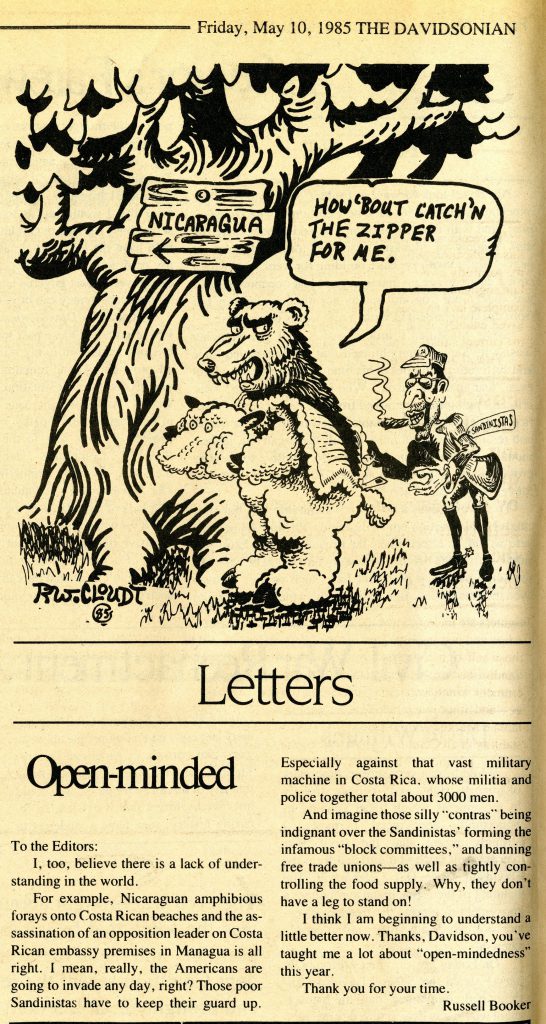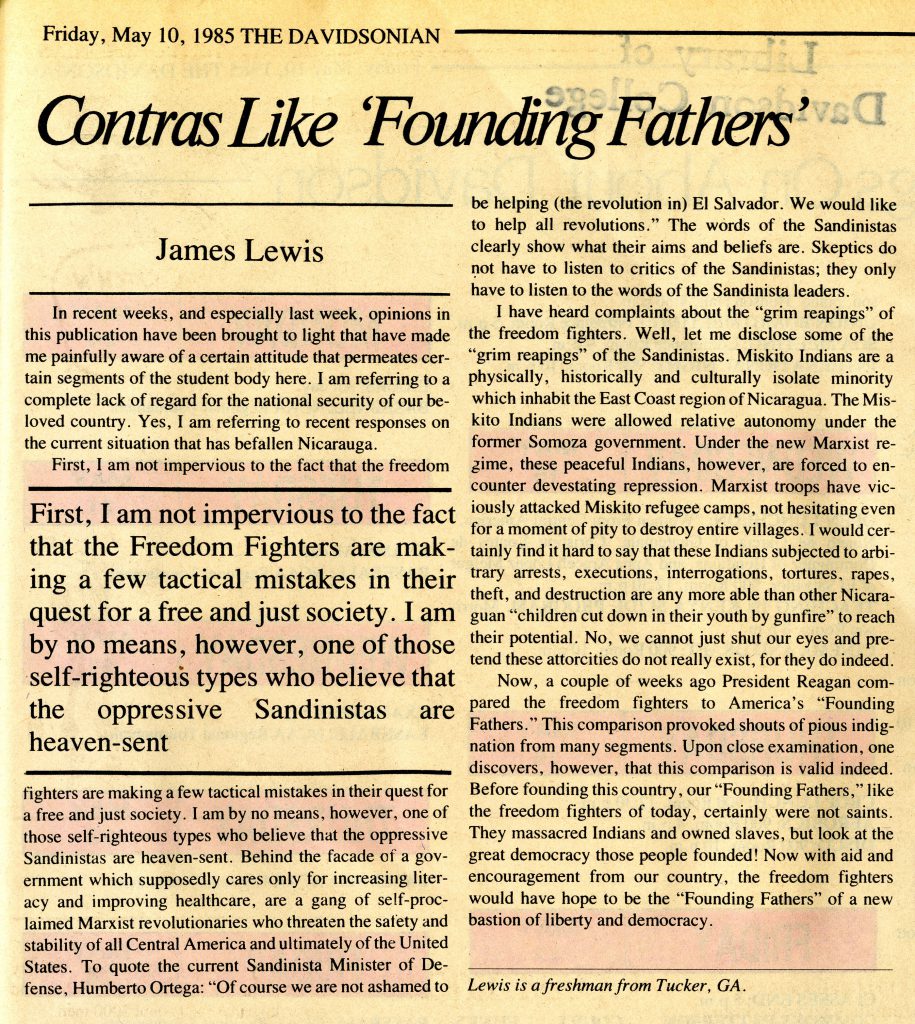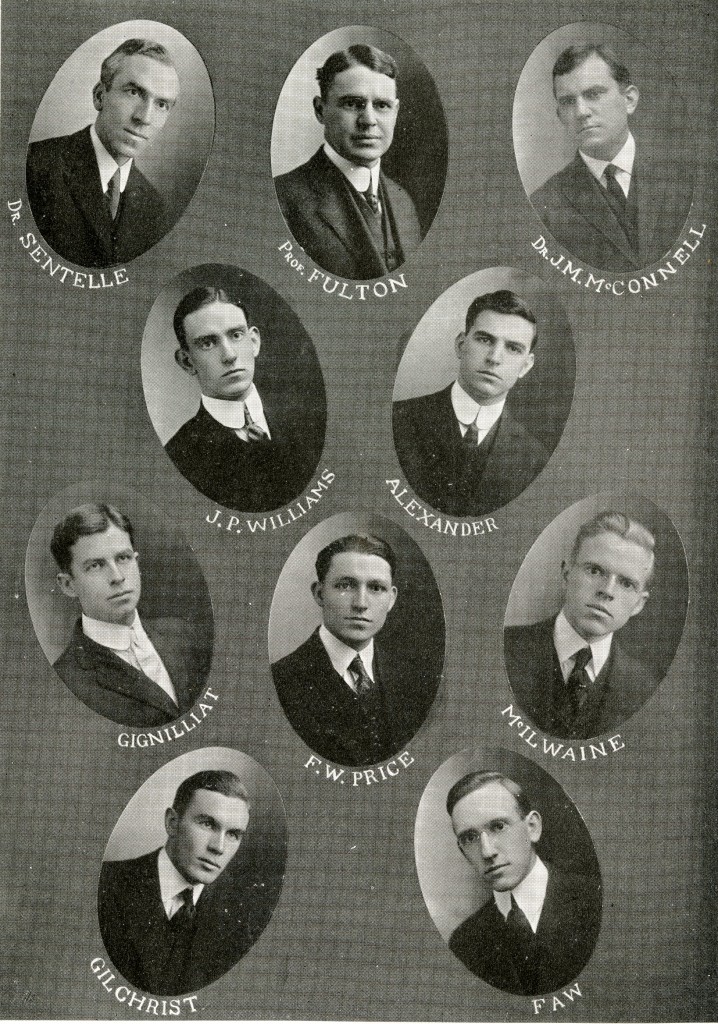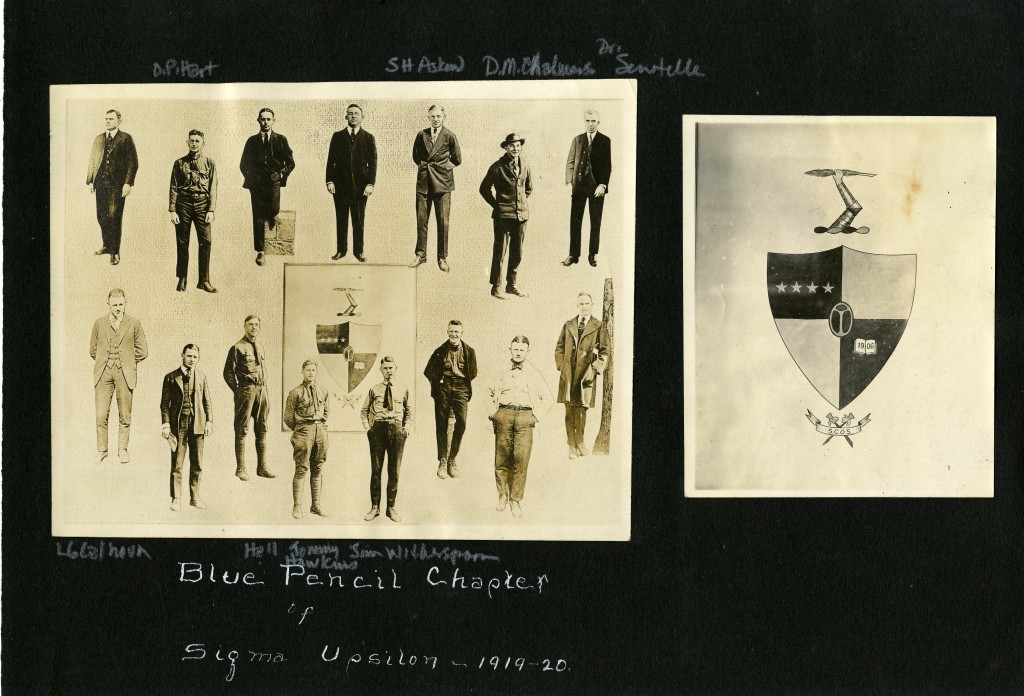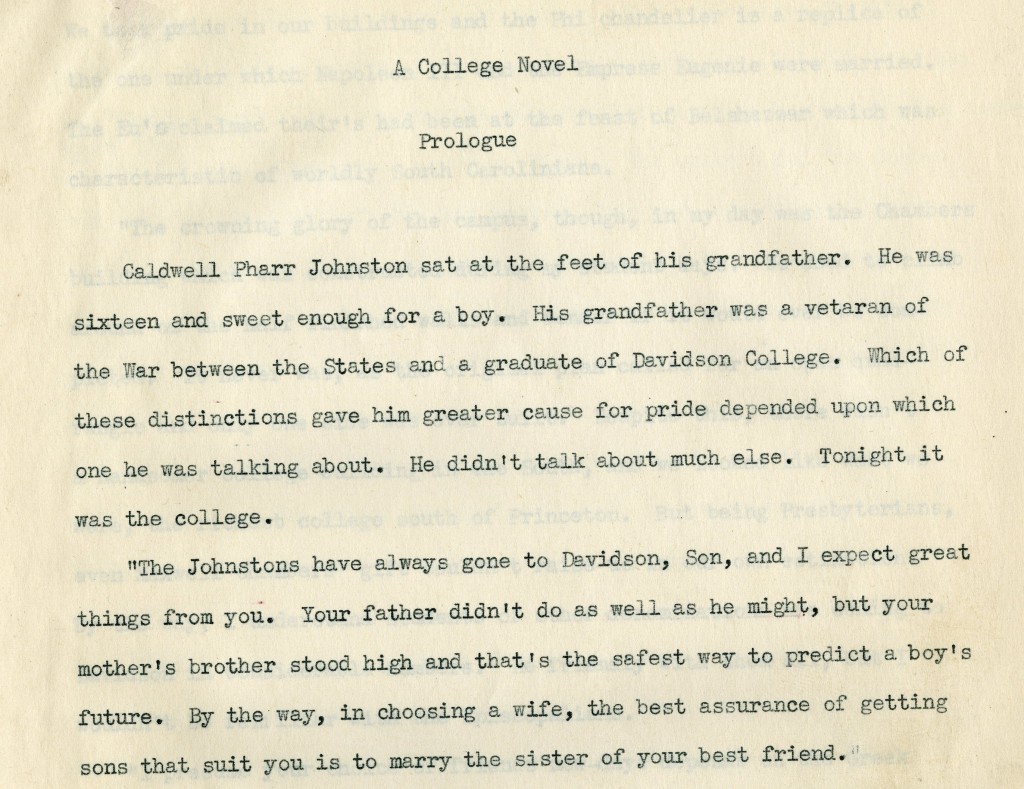45 years ago this week, March 24-25, 1972, the First Annual North Carolina Debate Championships were held at Wake Forest University. As A. Tennyson Williams, Jr., then Director of Debate at WFU, explained in a letter sent to debate team coaches and instructors around the state:
“Every debate school in North Carolina is invited to enter 2-man switch-side teams in varsity and/or novice (first year debaters) competition. There will be six rounds of eliminations beginning at the semi-final level (if there are enough teams to merit semi’s) in both divisions. Each school may enter 1 or 2 teams in each division. Please try to provide one qualified judge per 2 teams… I hope you will be able to enter some teams. North Carolina Championships could be an effective tool for building support for debate in the state and within your school.”
Davidson College has a rich tradition of debate, or as it was sometimes known, forensics. Eumenean and Philanthropic Literary Societies, founded in 1837, held both internal debates based on members’ research and formal debates with each other. Although the exact formation date of the official Debate Club on campus is unknown, Davidson students began competing in intercollegiate debate competitions in the 1890s and helped found the Intercollegiate State Oratorical Association in 1890.
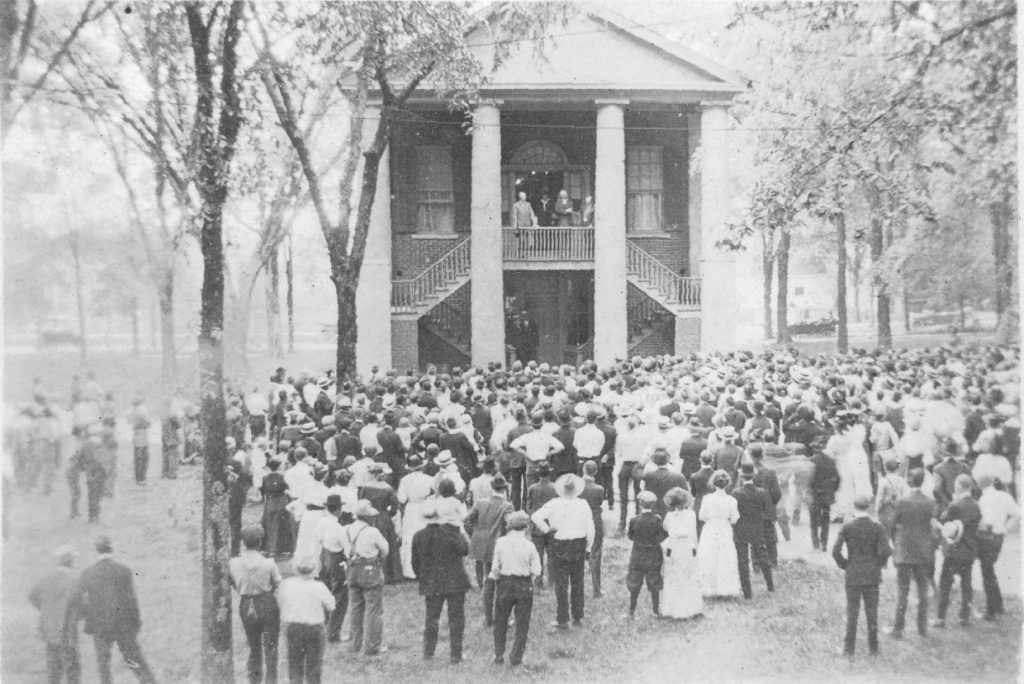
The Debate Club was most active between 1909 and the beginning of World War II, before fading out as student interest waned for the next few decades. The Davidsonian reported on a string of debate wins in April 1924, pointing out that between 1909 and 1924, the college debate teams had entered thirty matches and won twenty of them. The headline of the April 17, 1924 edition of the paper read “Davidson Debaters Down Emory Stars at Queens,” and the lead story crowed about the college’s success:
The rebuttal showed Davidson’s superior strength… It was here that the debate was cinched and even the consensus of opinion of the audience was that Davidson had added another victory to her string of intercollegiate debating wins.
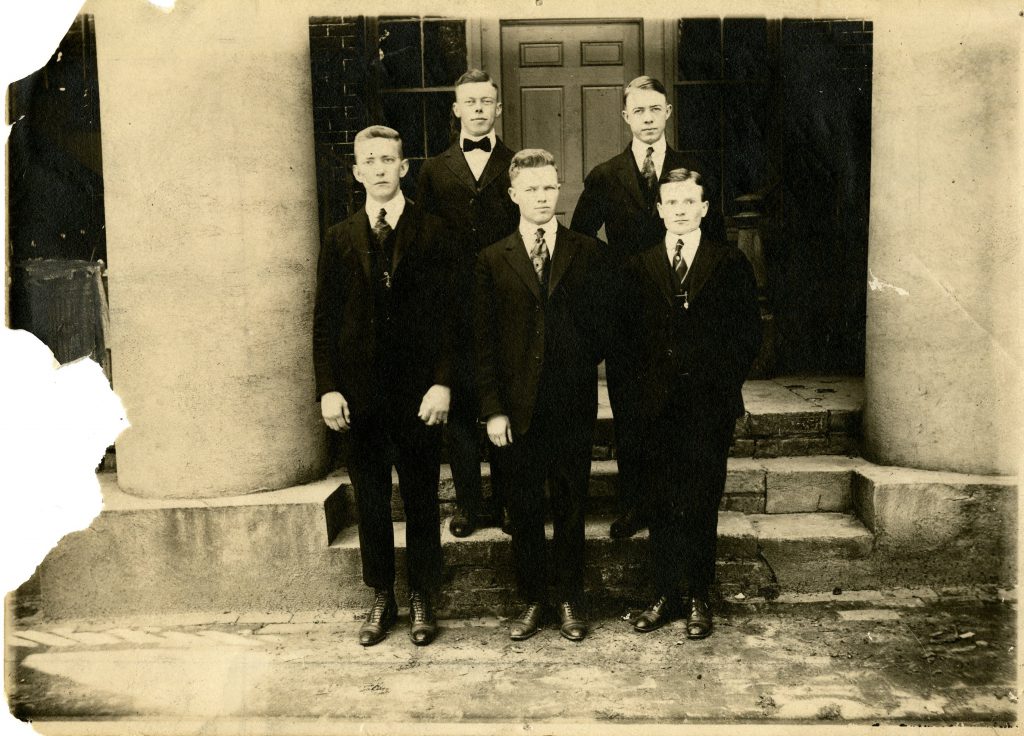
However, despite all of the early interest in debate, much of this activity centered around extracurricular clubs and societies and was not necessarily supported by classroom work. The study of rhetoric had been offered from the beginning days of the college, although specific speech and debate courses did not get offered until 1912, when Archibald Currie, who also taught Latin, Greek, mathematics, political science, economics, and education, led the first course in public speaking. After 1920, Dr. Currie dropped his broad Renaissance man duties and retained only his appointments in political science and economics, and the public speaking course was dropped until the 1950s and then offered sporadically until the hiring of Jean Springer Cornell in 1971.

Jean Cornell taught speech and debate at Davidson from 1971 until 1987, and directed the department of forensics that would develop into part of today’s Communication Studies interdisciplinary minor. Cornell earned a BA from Ohio Wesleyan University, a MS in journalism from Northwestern University, and a MA in speech from University of Arizona, and taught speech and debate at the University of Arizona at Tucson and Scripps College before coming to Davidson. Cornell served in a leadership role in Delta Sigma Rho – Tau Kappa Alpha (the honorary forensics organization), coordinated Mecklenburg and the surrounding counties’ Bicentennial Youth Debaters in 1976, and served as the editor for the Journal of the North Carolina Speech Communication Association.
Cornell would be prove to be an extremely effective debate team coach, and it was she who received the letter in early 1972, asking for Davidson to join the First Annual North Carolina Debate Championships. The Davidson and Wake Forest teams won nearly all of the honors at these championships, with Davidson’s novice team of Les Phillips and Paul Mitchell (both Class of 1975) taking second place, and the varsity pairing of John Douglas (Class of 1974) and Rick Damewood (Class of 1975) tying for third with a team from the University of North Carolina at Greensboro. Phillips won first place honors individually in the novice division, and Douglas placed third individually for the varsity division. Both divisions debated the national intercollegiate topic of 1972: “Resolved: That greater controls should be imposed on the gathering and utilization of information on U.S. citizens by government agencies.”

In late fall 1972, Cornell sent a memo to John M. Bevan, then Dean of Academic Affairs, detailing the debate program and its need for greater funds:
“Needless to say, the weak need not and do not apply. We have had the number one students in the freshman, sophomore, and junior classes as debaters… Due to our limited budget, several of the Extended Studies students have not been able to debate in these tournaments, and we have had to decline invitations to such prestigious schools as Princeton and Dartmouth… In two years (spring, 1974) we should have the manpower and proficiency to have our own tournament for neighboring high school students. Who knows what else we might do? Maybe even become a real power in college debate.”

Cornell built a successful debating program, and during the 1970s, Davidson was ranked consistently in the top 20 teams in the “small school” category nationally, and occasionally cracked the top 10. During the 1970s, Davidson debaters won their match-ups roughly 55-60% of the time, and Cornell grew the program through special debate workshops prior to the academic year, as well as through course credits. As part of her work coaching the Davidson debate team, she helped plan the North Carolina Debate Championships in 1978 when they were held on our campus.

Jean Cornell retired from Davidson in 1987, moved to Arizona, and passed away in November 2015. Today, the Mock Trial Association carries on the tradition of hosting debate competitions, and the Communication Studies department has expanded its range of academic offerings beyond speech and debate to focus on interpersonal communication, public communication, and mass communication, but still hosts the Speaking Center.







